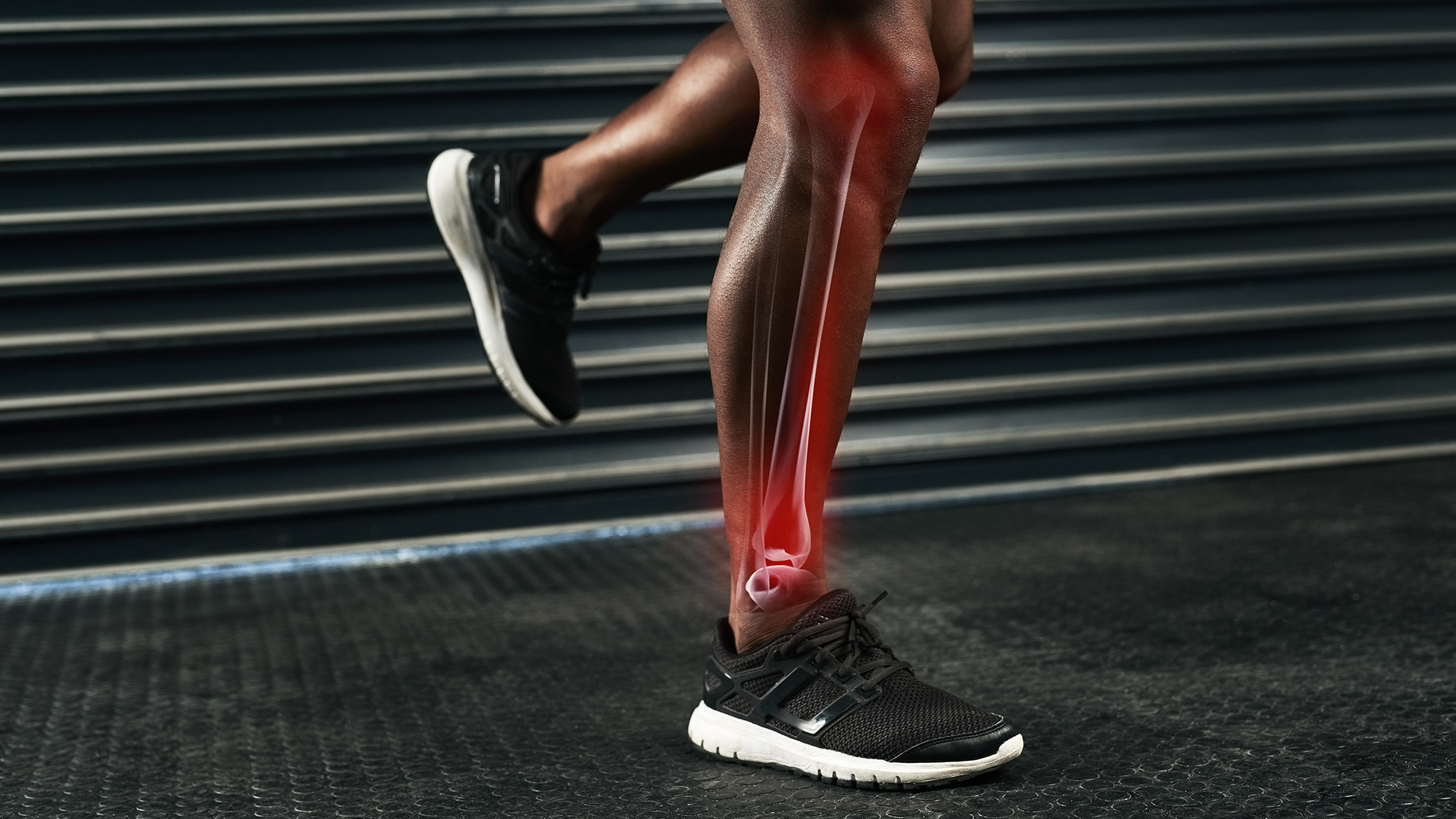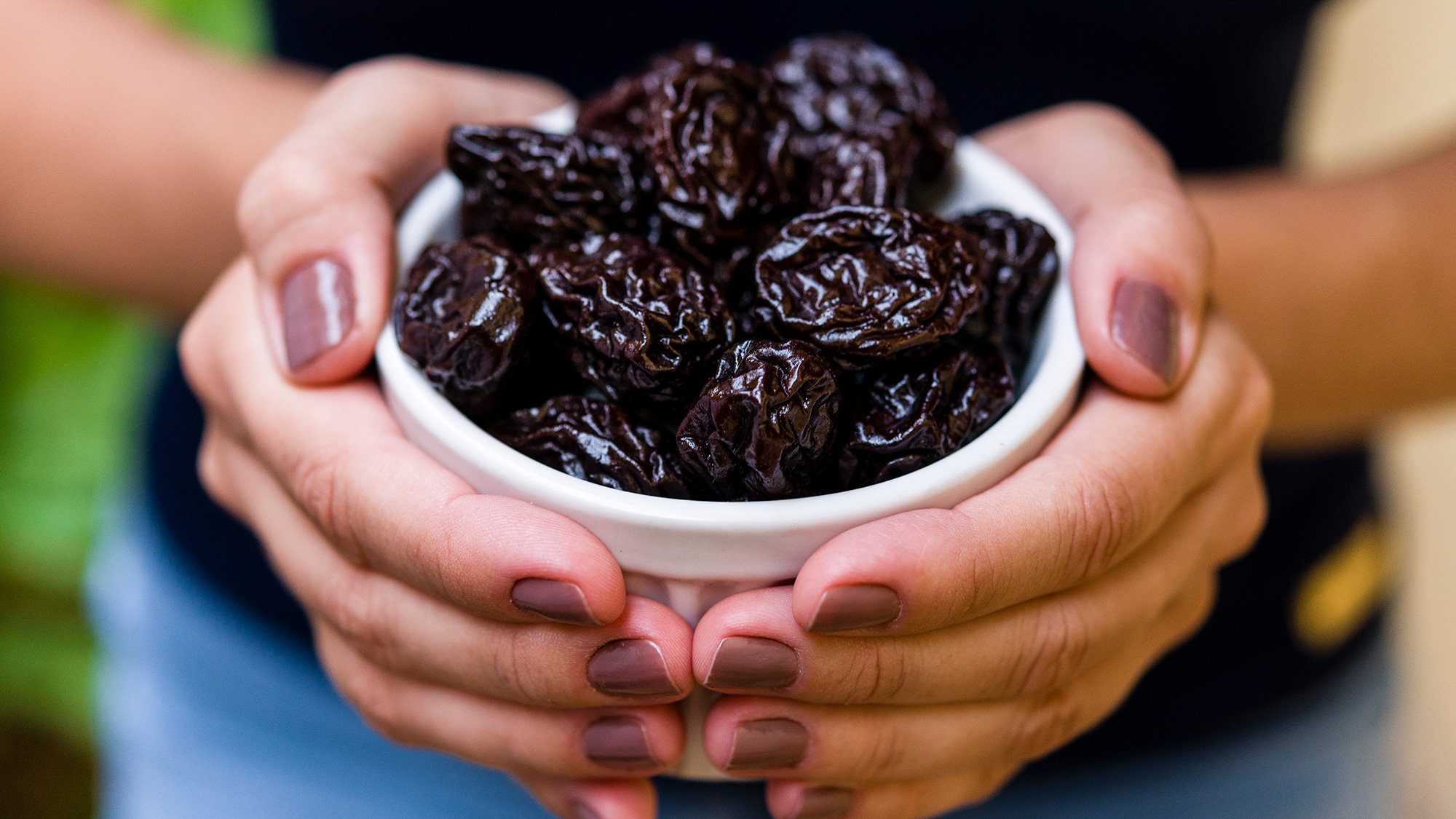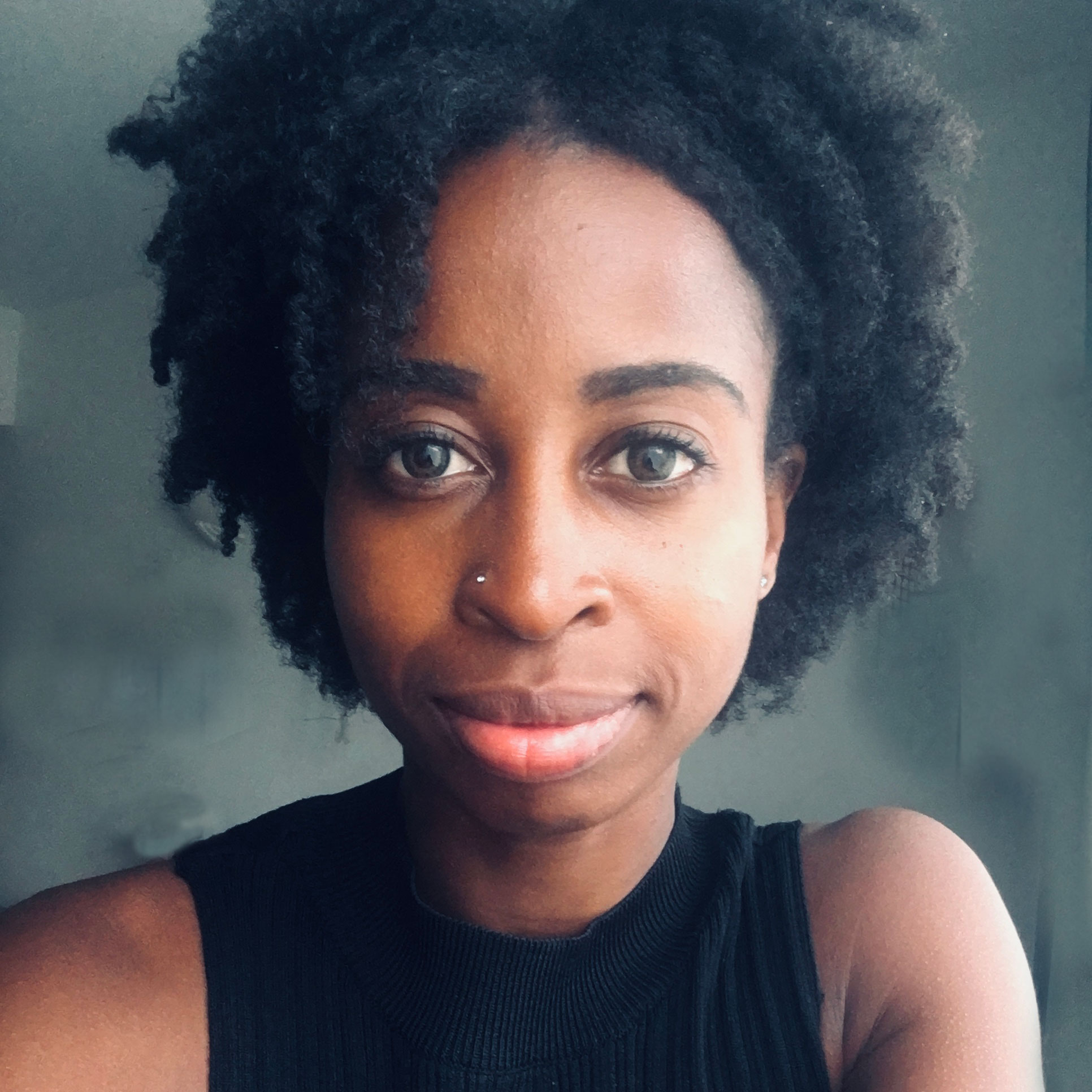How to build healthy bones: simple diet changes to make today
Fortify your frame and help build healthy bones with these expert tips and tricks


If you're wondering how to build healthy bones, you'll be pleased to know there are a number of things you can do to help.
Quietly doing their job of keeping us upright and helping us to move, it’s easy to take our bones for granted. But without them we’d be little more than a quivering mess of skin and muscle.
Most people reach their peak bone mass in their late twenties, after which time you start to lose slightly more bone mass than you gain. This overall loss of bone tissue can lead to conditions such as osteoporosis, the result of weaker, more fragile bones.
Osteoporosis is a common condition, especially in later life. According to the US Centers for Disease Control and Prevention (CDC), it affects almost 20% (1 in 5) of women aged 50 and over and almost 5% (1 in 20) of men aged 50 and over. Meanwhile in the UK, the Royal College of Nursing states that over 3 million people - once again largely women - are set to feel the bone-weakening effect of osteoporosis.
A study published in the British Medical Journal states that one of the main reasons women are more susceptible to osteoporosis is due to the accelerated bone turnover and bone loss in the decade after the menopause, when the levels of bone-protective estrogen decrease (some of the best menopause supplements contain calcium and vitamin D specifically to help combat this).
Fortunately, many dietary habits along with changes to your exercise regime can help boost your bone health and future-proof your frame. Here's how to build stronger bones...
1. Eat enough protein
According to both the USA's Dietary Reference Intake guidelines, the recommended nutrient intake for protein is 0.8g of protein per kilogram of bodyweight per day in adults. The figure in the UK is slightly lower, with the British Nutrition Foundation citing 0.75g. This equates to approximately 56g a day for men and 45g a day for women aged 19-50 years.
Start your week with achievable workout ideas, health tips and wellbeing advice in your inbox.
Research shows that whilst a diet that is low in protein can lead to bone loss, a high protein intake can help build strong bones, particularly in older women or during weight loss. In a large-scale study published in The American Journal of Clinical Nutrition, which observed over 144,000 postmenopausal women for a period of six years, researchers found that higher protein intake was linked to a significantly higher bone density in the hip, spine and total body, as well as lower risk of forearm fractures.
Another one-year study, which looked at women who were following a weight loss program, found that those consuming a higher dietary protein amount of 86g a day lost less bone mass in their legs, spine, hips and arms than women who had a daily protein intake of 60g a day.
Whilst concerns have been raised about high-protein diets increasing the rate at which calcium is lost from the body, studies published in the Journal of Bone and Mineral Research and The Journal of Nutrition have found that this doesn’t occur in people who consume up to 100 grams of protein daily - particularly if this is combined with an adequate calcium intake and a diet rich in plant foods.
The latest Dietary Guidelines for Americans cite healthy sources of protein as lean or low-fat meats, poultry and eggs, fish and seafood, and unsalted nuts, seeds and soy products. When it comes to meats and poultry, healthy preparation is key, too. We've picked the best grills to help you cook the healthy way.
For an easy alternative way to boost your protein intake, try adding some protein powder to your next shake or smoothie. For help selecting a protein powder that's right for you, see our guides to the best protein powder for women and the best protein powder for weight loss.
2. Increase your vitamin D intake
According to a study published in the journal Age and Ageing, Vitamin D deficiency is a global health problem, with an estimated 1 billion people worldwide being deficient in this vital vitamin.
Vitamin D is particularly vital for healthy bones as it boosts absorption of the minerals calcium and phosphorus to help build strong bones, muscles and teeth. According to a study in The Journal of Pharmacology & Pharmacotherapeutics, without vitamin D only 10–15% of dietary calcium and about 60% of phosphorus is absorbed, making vitamin D key for optimum bone health.
During the sunny weather our skin can manufacture vitamin D naturally, but if sun exposure is not sufficient, we need to look to our diets and incorporate more vitamin D foods. Good sources include oily fish, eggs, liver and cheese, but many people need to supplement vitamin D daily to maintain optimal levels.
3. And also your vitamin K intake
Vitamin K2 has also been shown to support bone health. In fact, studies show that vitamin K has a synergistic relationship with vitamin D. In one study found that combined supplementation of vitamin D and K increased bone mineral density in a group of post-menopausal women with osteoporosis more than either vitamin in isolation.
A good source of vitamin K is prunes. In a study in the British Journal of Nutrition, researchers found that post-menopausal women can increase their bone density and protect themselves against fractures and osteoporosis simply by eating around 10 prunes a day.
Many multivitamins also contain vitamin D alongside vitamin K, including several on our guide to the best vitamins for women over 50.

4. Eat more vegetables
Vegetables are one of the top sources of the antioxidant vitamin C, which not only helps with bone formation, but may also protect bone cells from damage, according to a study in the Journal of Bone and Mineral Research.
For women at risk of accelerated bone turnover and osteoporosis, a vegetable rich diet has been shown to be effective. In one study from the journal Menopause, which looked at women over 50, those who consumed onions most frequently had a 20% lower risk of osteoporosis, compared to women who rarely ate them.
This could be largely due to onion’s high content of the powerful antioxidant quercetin. In a recent study, quercetin was shown to have positive effects on bone health, with the study authors concluding that quercetin “may be considered an economical and promising agent for improving bone health.”
Studies also show that eating a vegetable rich diet can help maintain bone mass in younger adults too. In a study from the American Journal of Clinical Nutrition, involving 325 preschool children, diets rich in dark-green and deep-yellow vegetables and low in fried foods were linked with higher bone mass. Another study also found that daily intake of green and yellow vegetables was effective for maintaining bone mass in young women.
For an easy way to incorporate more vitamin C and other antioxidant rich ingredients into your diet, try adding nutrient-rich smoothie boosters such as camu-camu powder to your next healthy smoothie, which boasts a higher vitamin C content than many other fruits.
5. Ditch very low calorie diets
Studies have shown that having a low body weight can help to reduce bone density and bone loss, especially in post-menopausal women. According to a study in the Journal of Bone and Mineral Research, this can be due to the stress of excess weight, which can impair bone quality and increase the risk of fractures.
But when it comes to maintaining a healthy weight, studies suggest avoiding very low-calorie diets. Not only can these slow down your metabolism, open you up to cravings and cause muscle mass loss, they can be harmful to bone health too.
In a study from the journal Clinical Science, researchers found that a diet providing fewer than 1,000 calories per day led to increased bone loss and lower bone density. Another study looking at obese women who were consuming 925 calories a day for a period of four months found that they suffered significant loss of bone density from their upper thighs and hip region – a risk factor for osteoporosis and fractures.
If you’re looking to shed pounds, the best approach is to work out how to eat healthily and combine this with regular exercise. Our guide on the best exercise machines to lose weight will help you find a gym machine that best suits your needs. You could also look at our tips for how to lose weight quickly and walking to lose weight.
6. Do more bone-strengthening exercises
Apart from your diet, you can also help build strong bones through physical activity. In a study published in the American Academy of Orthopedic Surgeons, researchers found that when it comes to joint and bone health, being physically active can delay aging in bones.
Studies have shown that strength training and weight-bearing exercises can have particularly a positive effect on bone density and help to build strong bones.
When it comes to strength training, knowing how to lift weights is essential. So if you've invested in a set of the best adjustable dumbbells or a shiny new kettlebell, see our exert guides such how to deadlift properly and how to do a barbell squats for tips on how to correctly and safely approach the use of weights in a fitness regime.
Meanwhile, take a look at our for weight-bearing exercises check out our bodyweight workout plan.
Angela has been a health writer for over 10 years, contributing to a range of online and print publications including Women's Health, Women's Fitness, Your Fitness, Top Santé, Healthy, and Good Housekeeping. She writes about all aspects of health and wellbeing, with a special interest in nutrition and the therapeutic application of food. A qualified nutritionist and a recipe developer, she is the founder of Dara Dara Nutrition and has developed recipes for titles including GoodtoKnow. In her spare-time she likes to throw netballs, hula hoops and yoga poses (or what poses as yoga!) and has recently taken to the bass guitar. Fortunately for her neighbors, she’s invested in some headphones.
